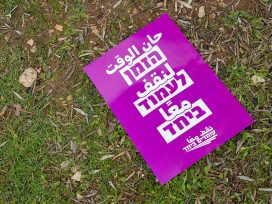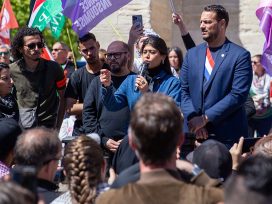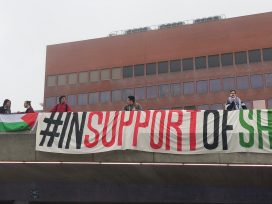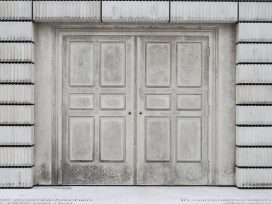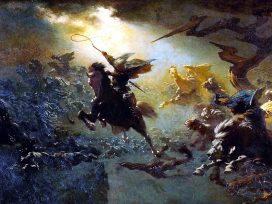A world city like Paris, London or New York contains ten million or more people within an area no larger than the average American cattle ranch. If the citizenry were all of one religion, one race, one world-view, the issue of free speech might never arise. In the conditions of modernity however, a city may contain within a couple of acres every race on earth, every imaginable religious, political and existential world-view. Those who believe their sacred texts are the literal word of God may live a stone’s throw from those who are not even atheists: the question of supernatural authority does not even come up, any more than the existence of extinct religions, of Thoth, Frigg or Apollo does for everyone else. From their various temples religions daily blaspheme in each other’s faces. Is Jesus the son of God? Not if you’re a Muslim. Is Mohammed God’s last messenger on earth? Not if you’re a Christian. Is the universe best explained or explored in the terms of physics-based godless cosmology? Not if you’re a Muslim or a Christian.
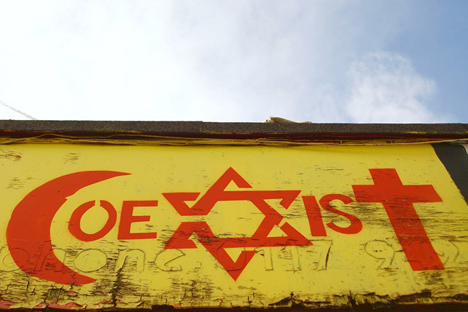
Graffiti in Bristol’s city centre, United Kingdom, 31 August 2009. Photo: 1000 Words. Source:Shutterstock
Who will guarantee the peace? Not religion. European history reminds us that when Christianity was in its pre-Enlightenment totalitarian pomp, and then its major schism, the intolerance of small differences made, as in the case of the Thirty Years War, for barbarity and slaughter on a horrifying scale. And persecution, torture and terror, from the burning of William Tyndale for translating the bible into English, to the outrages of the Spanish Inquisition and, in return, appalling savagery against Catholics.
Islam, from Pakistan to Saudi Arabia and other Gulf States, from Indonesia and Turkey to Egypt, is experiencing its own version of a totalitarian moment. Daily, we read of torture, imprisonment and execution of those Muslims who either wish to leave Islam or open it up to discussion. They suffer for violations of Islamic codes of apostasy and blasphemy, which are available to wide interpretation. In Pakistan, local politicians use blasphemy laws as a lethal weapon. In Egypt, a teacher has been jailed for three years for talking to her pupils about other faiths. Across the Middle East, Christianity and Zoroastrianism are being driven from their homelands. In Turkey press freedom is under sustained attack by religious conservatives. Authoritarian Arab regimes cynically use Sharia law as a means of containing political opposition. Boko Haram and ISIS, with their nightmarish intolerance represent a heightening to terrifying absurdity of what is practised in certain states. In Saudi Arabia, home to Islam’s most revered shrines, apostasy carries the death penalty. Its latest brutal repression of free speech, a thousand lashes and ten years’ imprisonment, shows the government to be the denigrator of Islam as a religion of peace and has aroused worldwide disgust, some of it eloquently expressed by Muslims.
In the cities of the West, richly layered in race and religion, the only guarantor of freedom of religious worship and tolerance for all is the secular state. It respects all religions within the rule of law, and believes all – or none. The difference is negligible, since not all religions can be true. The principle of free speech is crucial. The cost is occasional offence. The lawful demand is that offence must not lead to violence or threats of violence. The reward is freedom for all to go about their business in lawful pursuit of their beliefs.
The freedom that allows the editors and journalists of Charlie Hebdo their satire is exactly the same freedom that allows Muslims in France to worship and express their views openly. The devout cannot have it both ways. Free speech is hard, it’s noisy and bruising sometimes, but the only alternative when so many world-views must cohabit is intimidation, violence and bitter conflict between communities.
The importance of free speech can’t be overstated. It is emphatically not just the luxury of journalists and novelists. Nor is it an absolute. Where it is constrained (for example, to limit the on-line reach of paedophiles) it must be so through laws within democratic institutions. But without free speech, democracy is a sham. Every freedom we possess or wish to possess, (including of sexual equality, of sexual preference, of habeas corpus and due process, of universal franchise and of assembly – the list goes on) has had to be freely thought and talked and written into existence.
Freedom of speech – the giving and receiving of information, asking of awkward questions, scholarly research, criticism, fantasy, satire – the exchange within the entire range of our intellectual capacities, is the freedom that brings the others into being.
Free speech is not religion’s enemy, it is its protector. Because it is, there are mosques by the score in Paris, London and New York. In Riyadh, where it is absent, no churches are permitted. Importing a bible now carries the death penalty.
